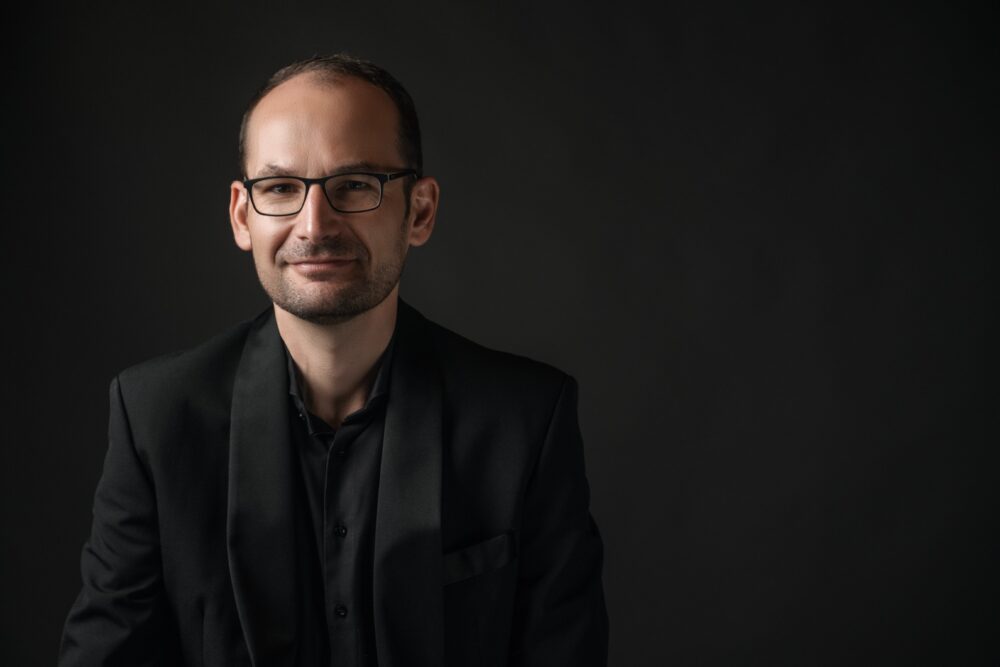Blown away: Josie McClure will be performing in Variations on Cantaloupe Island on 12 October at the Shed & Silo in Benoni. Photo: Supplied
Lovers of classical/ jazz music are in for a rare treat with the debut performance of Variations on Cantaloupe Island to be held on Sunday 12 October at the Shed & Silo in Benoni.
In another first, the Mzansi Chamber Music Collective (MCMC) commissioned the multi-award-winning composer Conrad Asman to write music specifically tailored to the extraordinary talents of classical saxophonist, Josie McClure.
A graduate of the Koninklijk Conservatorium Den Haag in the Netherlands, McClure came second in the International Woodwind Competition in Bloemfontein. Her prize was a concert with the MCMC.
“This concert is very special to my heart,” says the MCMC’s creative director and well-known pianist, Eugene Joubert.
He believes there needs to be more consciousness of contemporary South African compositions and works of different genres among South African audiences.
From the MCMC’s perspective, he says, “To be able to commission a work for piano and saxophone, or for piano and trio, or for cello and violin, whatever it is, as we move forward as the collective has been very special. And we have been really fortunate to have come across Conrad Asman.”
Asman, whose works have been performed in Africa, Asia, Europe and America, is pursuing a doctoral degree in music at the Royal Academy of Music in the UK.
His musical influences range from classical to jazz to Afropop: Mozart, Ligeti, Thomas Adès, Charlie Parker, Herbie Hancock and Dizzy Gillespie.
Everybody from Nigerian Afropop superstar Fela Kuti to the Kenyan nyhatiti player Ayub Ogada to South African composer and pianist Surendran Reddy were among the names he mentioned.
“My Spotify playlist is hilariously jumbled, with a Brahms piano trio followed by a crazy jazz bebop band,” says Asman. “It’s not organised at all and I love it. I’m always looking for new things.”
Asman and McClure engaged virtually between the UK and the Netherlands to shape the new composition. When McClure said she liked music that was “really energetic and fast”, there was an immediate rapport between the two young South Africans.
“Josie has done incredible things in South Africa and in the Netherlands,” says Asman. “When you have a saxophone player like Josie and a pianist like Eugene, who are very talented and very skilled, you want to be able to write a piece that’s specifically tailored for them.”
 Pianist Eugene Jobert.
Pianist Eugene Jobert.
“We exchanged lots of WhatsApps. Josie would record a little of her playing and then I would do a bit of tweaking and we have been lucky to have had a lot of time to shape this piece into what it is.”
McClure says the music was written “idiomatically” by a composer who understands the saxophone well. Asman included a technique known as “whistle tones”, which McClure asked him to change.
“He wanted me to bite down on the reed to create these very high overtones and I asked him to change that.” Apart from that, McClure said, she didn’t have much feedback.
“It’s a very colourful work.”
“Josie has quite a lot of extended techniques that are not traditional sounds that one would hear on a saxophone and I think, as difficult as these things are to deliver in a performance, that is what makes it so exciting,” Joubert says.
“It’s a challenge but it’s also a really fascinating melting pot.”
Variations on Cantaloupe Island was inspired by jazz pianist Herbie Hancock. Describing the music, Asman said it consists of variations of the same melody.
There is an introductory section in which the saxophonist “emerges from nothing with very gentle tapping sounds that are not really pitch-specific”. This is followed by an interlude between the piano and the saxophone in which the main theme from Variations on Cantaloupe Island is sounded, Asman explains.
“I’ve had a wonderful time studying and learning Variations on Cantaloupe Island,” Joubert says, although he explains that it took him some time to understand Asman’s compositional style and sensibility and the way that he treats the piano.
Both Asman and McClure displayed their interest in, and gift for, music at a young age.
Asman recalls wanting to play Celine Dion’s My Heart Will Go On as a child. His piano teacher told him that he was too young; his hands were not big enough to reach the octave spreads. However, he moved the notes around and changed the harmony.
“I think that was the first instance of me wanting to do more creation than rehearsing.”
 Contemporary: Variations on Cantaloupe Island composer Conrad Asman
Contemporary: Variations on Cantaloupe Island composer Conrad Asman
Originally from Johannesburg, Asman moved to Cape Town to study at the South African College of Music. Although he enjoyed playing the piano at university, and managed to play some decent repertoire, composition became more important.
“I never regretted taking piano. It was hugely useful, and I still play from time to time, but not professionally — unless someone needs me to.”
In 2018, Asman won the Southern African Music Rights Organisation Overseas Scholarship, which enabled him to study at the Royal Academy of Music in London.
On his return, he was composer in residence for the Cape Town Philharmonic Orchestra.
Last year, he wrote the music for the controversial short opera, Trial by Media about the Oscar Pistorius murder trial for the Cape Town Opera. In between these landmarks, and subsequently, he has taken on a number of other commissions.
McClure’s first exposure to music was at school where she took an interest in playing the trumpet.
She wanted to take the exam but was told she wasn’t good enough and would fail.
The rebuff fuelled her determination and she won a trophy for having the highest marks. A trumpet player, Reynier Strydom, became her first saxophone teacher.
“He taught me how to love music and had a huge influence on my career,” she says.
She was in grade five or six when she got her first saxophone — an old Yamaha. Much later, she was able to buy the Yamaha Custom saxophone she still plays today.
An ongoing challenge has been the absence of classical saxophonists in South Africa.
Professor Liam Burden at Stellenbosch University was her mainstay. He helped her to find and follow her own path and she graduated from the university with a BMus (cum laude) in classical saxophone performance in 2017. Later, she completed her master’s in music.
Joubert said he has been studying Asman’s Variations on Cantaloupe Island over the past few months to understand his compositional style and his sensibility and the way he treats the piano.
“It’s been a real eye-opener,” he says. The music, which makes extreme demands on both instruments, has an arc to it, he explains. “Each variation pulls on the next.”
For Asman, it is important that players — and audiences — are drawn into his music rather than pushed away, even if it is emotionally challenging. “Musicians put in hours and hours of their lives to learn the music and become involved with it,” he says. “They need to feel that it is worth the effort and musically rewarding for them.
“I think there is an appetite among South African audiences for the unusual and we are very happy that we can expose them to unusual music and fill that gap.”
For the MCMC, commissioning composers like Asman is an extension of moving away from tried and tested music to something new.
“Many people associate South African composers with inaccessible music and we have tried to show them that this is not always true, although new music may not be immediately accessible, if you make a bit of effort to listen attentively, it can be a very enriching experience,” Joubert says.
“We want South African audiences to trust us enough so that they know that, even if they come to a concert not knowing what the music will be, they know it will be something worth listening to.”